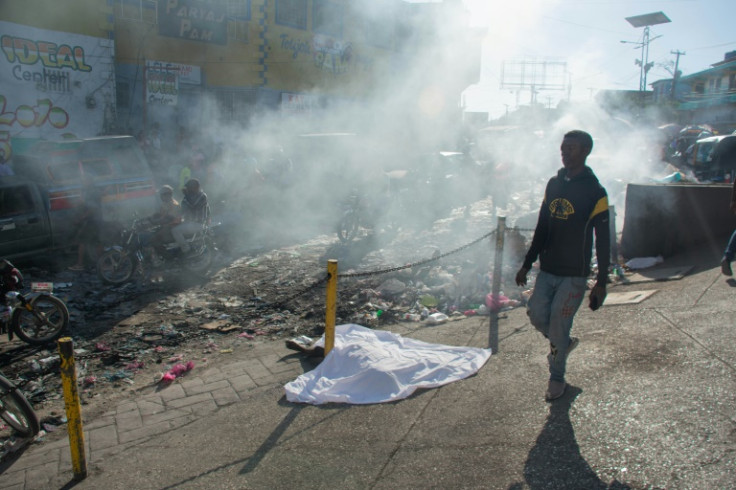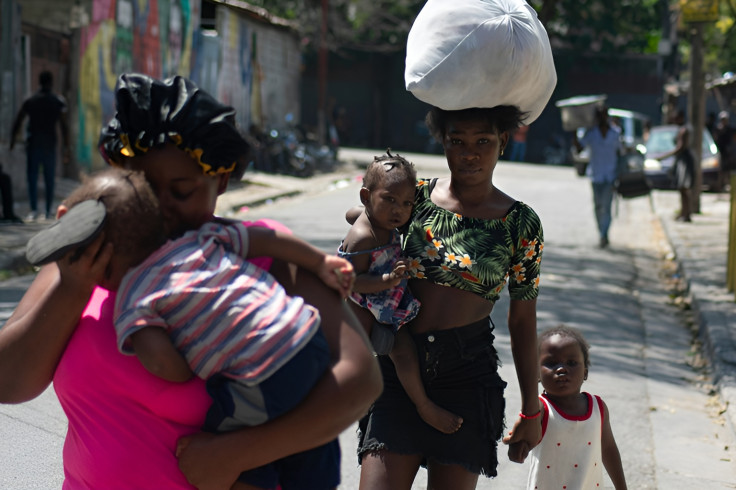
The United States is "prepared" to deploy troops to Haiti as part of a multinational force if the crisis in the country continues to escalate, but is not currently considering the scenario, the top general for the region said this week.
Gen. Laura Richardson, commander of U.S. Southern Command -which encompasses Latin America and the Caribbean- said that the armed forces "wouldn't discount" the involvement of U.S. forces in such an effort.
"We are prepared if called upon by our State Department and Department of Defense," Richardson added during an event at the Atlantic Council, where she also all but ruled out a "U.S.-only solution."
The U.S. is currently focused on providing support on two fronts: a political one, where national and international actors are negotiating the formation of a transitional council tasked with holding elections; and a security-focused one, centered around helping to finance an international force led by Kenya to neutralize the different gangs that currently control about 80% of the capital, Port-au-Prince.
But both efforts are facing different challenges. Negotiations to form the council, which gained momentum after Prime Minister Ariel Henry agreed to step down following its formation, have been slow during the past days despite pressure from the U.S. and Caribbean countries.
AFP reported that council participants had not been specified to Henry as the negotiations drag on. The council would name an interim prime minister to oversee the country's first elections since 2016.

As for the international force, efforts have stalled as Kenyan courts continue to block the deployment. The U.S. and Canada have pledged hundreds of millions to fund the effort, but refrained from contributing with troops.
The situation continues to deteriorate in the meantime, with renewed clashes being reported on a daily basis. Some of them took place in in the Petion-Ville suburb of the capital, according to residents, with locals barricading roads to protect themselves and stop gang access, AFP reported.
The violence has exacerbated an already grim humanitarian situation, with warnings of famine, malnutrition and the collapse of basic services. The World Food Programme said roadblocks in the capital had impeded efforts to distribute food.
The United States continued to evacuate more of its citizens, taking them by helicopter from Port-au-Prince to the neighboring Dominican Republic. Separately, a rescue flight organized by the administration of Florida Governor Ron DeSantis carried 14 Americans from Haiti to the southern US state on Wednesday.
DeSantis said it would "probably be the first of many flights" for US citizens, according to local media.
Despite this, the U.S. hasn't yet seen a surge in sea voyages to reach the country, two officials told CBS News. Should that eventually be the case, they added, authorities have a longstanding contingency plan that includes housing migrants at the Guantanamo Bay Naval Base, located in the southeast end Cuba.
The U.S. has been leasing that land since 1903. It includes a center where officials have been screening asylum-seekers for years and is separate from the detention center, which holds dozens of people suspected of terrorism.
Officials have shown concern about the possibility that figures increase substantially as violence continues to increase in Haiti, leading to the collapse of all basic services and political order. Screening facilities at Guantanamo could be overwhelmed if daily detentions exceed 1,000.
© 2024 Latin Times. All rights reserved. Do not reproduce without permission.







